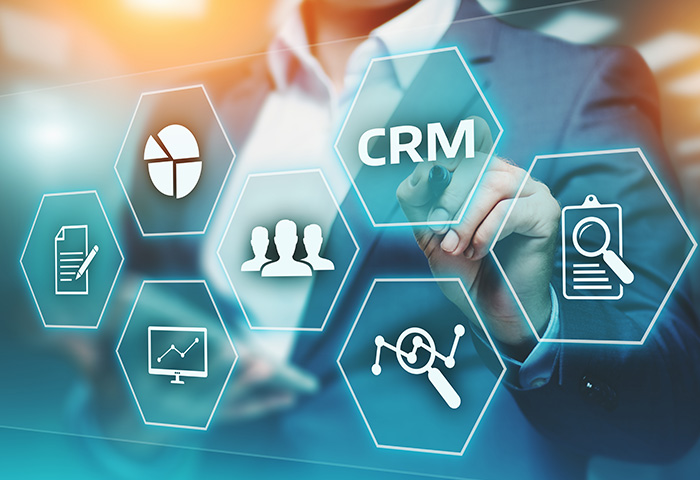Customer Relationship Management (CRM) or customer relationship manager, is a tool that facilitates the performance of daily activities within a company, allowing employees to have greater control and standardization of the phases of everything sales process in order to know exactly the status of each client.
What is a CRM software?
CRM Software is a computer tool (software) that will help you in the loyalty process of your customers . Having a Consumer Relations Management system means having a great variety of technological, workpuls and digital communication media concentrated in one place, so that you can have them whenever you want and it is through these channels that you build the relationship with your client.
This software allows you to have greater control of each action that your salespeople have in relation to your customer, closely following each of these steps towards loyalty; Considering the digital age in which we live, having this tool greatly facilitates the process of attracting and retaining customers .
What is a CRM for?
It is software that helps companies properly manage relationships with their customers and prospects . It is considered a 100% customer focused business strategy.
A Dynamics 365 CRM Consulting allows you to define a business strategy focused on the customer.
The aim is that as much information as possible about customers is known to generate long-term relationships that increase their degree of satisfaction with your company and the services you offer , which leads to strengthening a long-term business relationship with more possibilities of repurchase. A management system of this type can help you gather and organize the important information of your clients and prospects to give a more exact follow-up that allows you to have better control during the sales process.
A CRM safeguards:
Contact information
Track emails, calls and meetings
Sales team appointment calendar
Benefits of a CRM system
Probably having an Excel document to group the interactions with your customers has worked for you so far; However, as your sales grow and your client portfolio becomes broader, it will be necessary to make use of a more specialized system that allows you to safeguard the information of your prospect, at the same time that helps you to increase your sales and strengthen your follow-up. .
A CRM in Marketing
With the proliferation of digital advertising media, such as websites and social networks, SalesUp! and other CRMs allow a direct connection to these tools. In this way, the data of the people who register their information in a form on the websites and networks that allow it, will reach the sales team in a matter of seconds.
CRMs like SalesUp! they also allow you to identify the prospects that came from each form. In this way we can obtain performance reports of our campaigns, since we would know which prospects came through them, if they became customers and their purchase amount.
Therefore, a CRM is of great help when it comes to making reports and analysis on segmentation or on the marketing campaigns of each company.
CRM and Databases
Speaking particularly of the importance of a CRM for the Marketing department, whether of an agency or any organization, it is necessary to emphasize that, although at the end of the day the reports come out of a pivot table in Excel, the CRM helps to minimize the human errors in filling any database.
Since part of the information is filled out by the same prospect, the CRM saves the sales team time for that filling. In other cases, the CRM makes it easier for the sales team to fill out by placing predefined options so that they only have to choose one option and not write or copy and paste.
Additionally, there are fields that are automatically filled in by the CRM, for example dates. All these data combined (those that fill the prospects, the sales team and the CRM) generate a database that can be a vital tool for any type of business analyst, whether they are the owners, partners, directors, managers or employees. different types of analysts (finance, accounting, marketing, pricing, etc.).
CRM and Segmentation
With the amount of data that SalesUp! and some other CRMs, it is possible to create segmentation models as advanced as Buyer Personas.
This type of segmentation separates your database into several typical people no more than 10 years apart in their age range.
Reaching this type of segmentation is very complicated when starting a business, but if the company uses a CRM from the beginning, it is very likely that they can make much better decisions for their business derived from the significant amount of information they have. . In fact, a CRM database is the first step to enter the world of “Big Data”.

